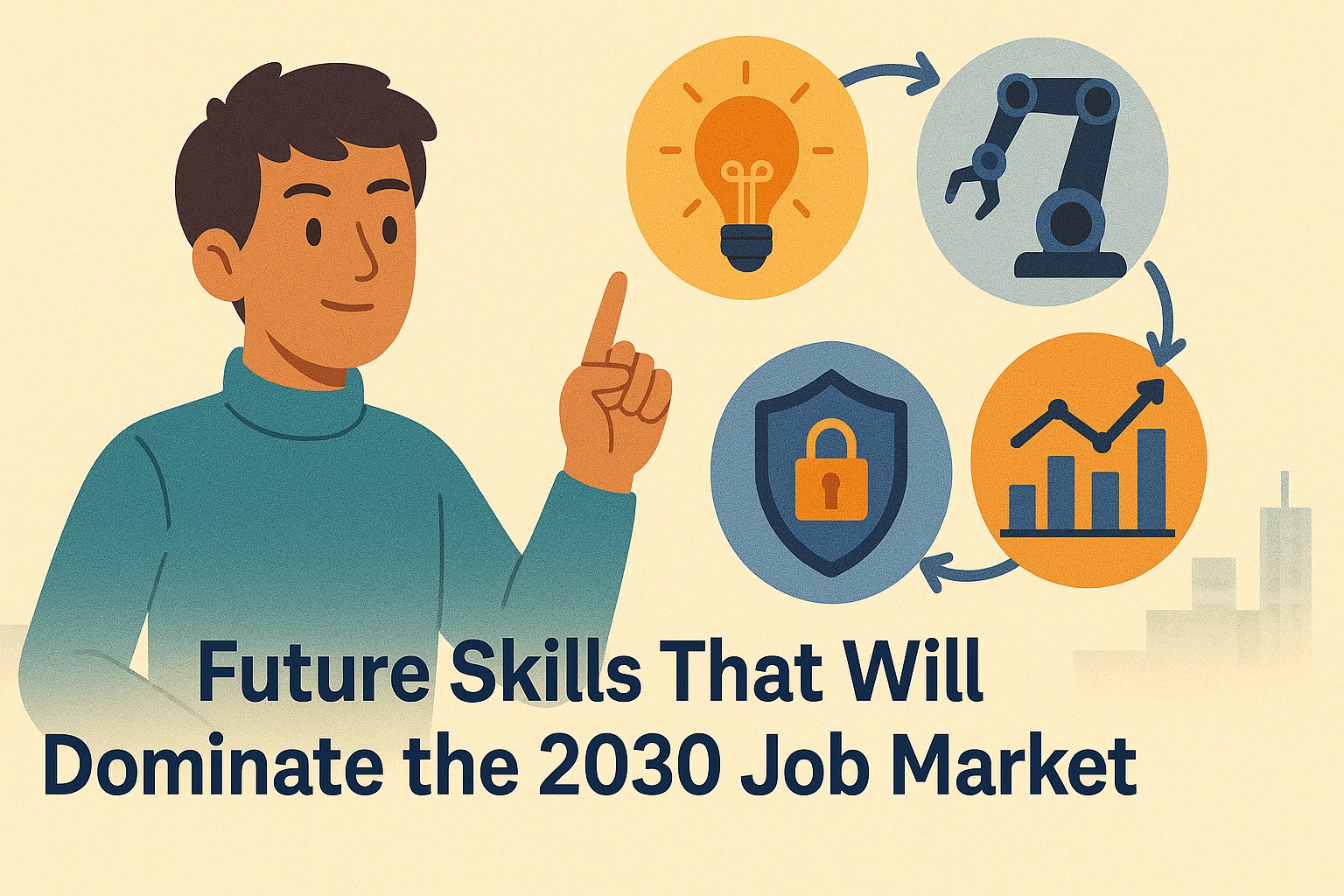
Future Skills That Will Dominate the 2030 Job Market
The rapid advancement of technology and the evolving global workforce have made predicting future skills more crucial than ever. By 2030, the job market is expected to look vastly different. Employers will become increasingly selective—not just seeking degrees but prioritizing relevant, forward-thinking skills. This article explores the key skills predicted to dominate the 2030 workforce and how you can start preparing today.
Why Are Future Skills Important?
In the age of automation and artificial intelligence, repetitive tasks are being replaced by machines. However, this shift also creates new opportunities that require advanced human skills. Equipping yourself with future-ready skills is essential to stay competitive and relevant in a changing job market.
1. Artificial Intelligence (AI) and Machine Learning
Understanding and leveraging AI will be a top priority. Companies will seek professionals who can build intelligent systems, analyze large datasets, and develop algorithm-driven solutions.
How to Prepare: Enroll in online courses on Python, TensorFlow, and Data Science.
2. Data Analysis and Big Data
Data is the “new oil” of the digital era. The ability to process, interpret, and make data-driven decisions will be a valuable asset across industries.
How to Prepare: Learn SQL, advanced Microsoft Excel, and analytics tools like Power BI.
3. Emotional Intelligence (EQ)
Despite technological advancements, the human ability to empathize, manage emotions, and build relationships remains vital—especially in leadership and customer service roles.
How to Improve: Practice active listening, conflict resolution, and effective communication.
4. Creativity and Innovation
Employers will highly value individuals who think outside the box and develop unique solutions to real-world problems.
How to Practice: Join creative projects, regularly brainstorm, and stay updated with industry trends.
5. Digital and Tech Literacy
Basic digital skills—such as managing software, creating websites, and understanding cybersecurity—will become non-negotiable in nearly every profession.
How to Prepare: Learn tools like Canva, WordPress, Google Workspace, and basic coding.
6. Adaptability and Flexibility
The 2030 workplace will be dynamic and ever-changing. Those who can quickly adapt to new tools, work environments, and expectations will thrive.
How to Practice: Embrace change, seek out challenges, and stay curious.
7. Collaborative Leadership
Future leaders won’t be authoritative—they’ll inspire through collaboration, empathy, and shared goals.
How to Practice: Join organizations, lead group projects, and enhance interpersonal skills.
8. Complex Problem Solving
The ability to think critically and solve unfamiliar, multifaceted problems will become increasingly essential in project-driven environments.
How to Prepare: Join business case competitions, debates, or simulation challenges.
How Students and Job Seekers Can Prepare
- Attend skill-specific training or bootcamps
- Build a digital portfolio on platforms like GitHub, Behance, or LinkedIn
- Balance the development of both hard and soft skills
- Leverage free learning platforms like YouTube, Coursera, and local education hubs
Conclusion
The future of work is not just about mastering technology—it’s about how well humans can adapt, collaborate, and keep learning. By preparing today, you’ll position yourself as a standout professional ready to face the evolving demands of the 2030 job market.
 Indonesia ID
Indonesia ID  English EN
English EN
